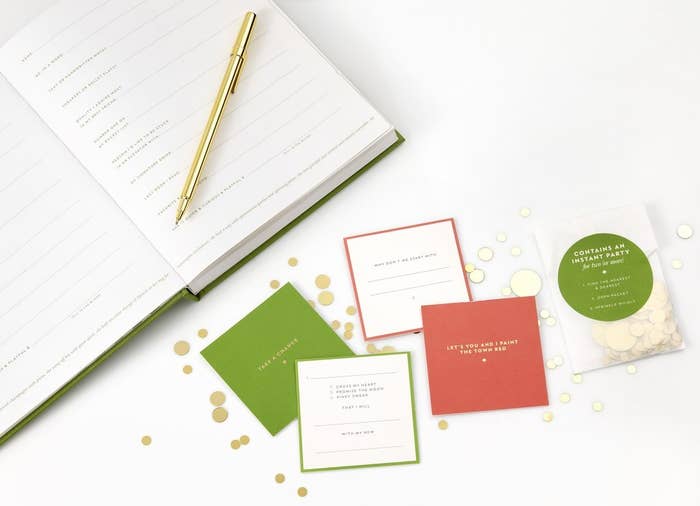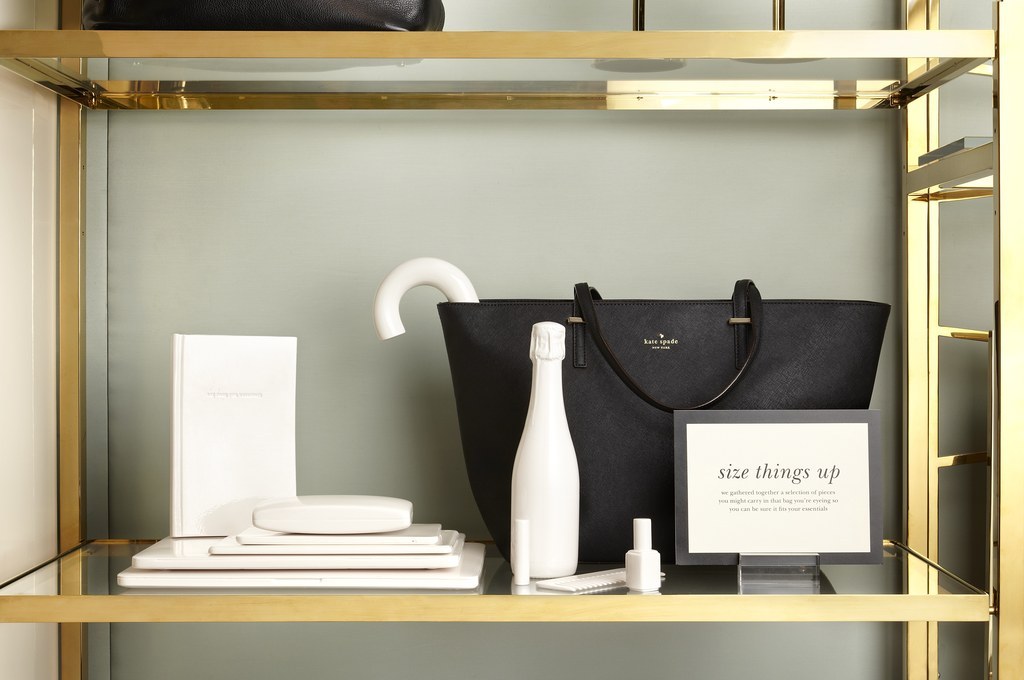
If you work at one of Kate Spade's stores in North America, you're no longer a sales associate trying to close the deal on $398 handbags and $148 charm necklaces.
Now, you're a "muse."
Muses will still help customers find what they're looking for and ring up purchases. But the company says their new focus goes well beyond that. A muse at Kate Spade will facilitate an "authentic experience that's customer-led," Mary Beech, the company's chief marketing officer, told BuzzFeed News in an interview last week. As part of a broader overhaul of its in-store experience, staff will focus less on transactions and more on the "guest journey," she said.
"We realized being called a sales associate did not represent that change and that being called a muse — a muse of style, a muse of lifestyle, a muse of the interesting life — was a nice way to manifest that change for them and to say to the associate: 'Your job is now not just a sale. Your job is first and foremost to authentically engage with that customer how she wants to experience Kate Spade that day,'" Beech said. "That change, I think from an associate to muse has been incredibly empowering to our associates."
Kate Spade's "guest journey" will extend to more than 100 of its full-price stores in North America. Beech said that muses will have a new set of optional tools for interacting with customers, like candies, packs of confetti, and birthday candles. Stores will also feature guestbooks and stations with resin models of laptops, iPads, and the like that customers can use to see what fits into a new handbag. Some will also have stationery tables where customers can write notes to their friends or take free Polaroid pictures.
It sounds gimmicky, but Kate Spade is following a slew of successful retailers in trading the "sales associate" title in for something more glamorous — at Apple, they're called specialists and geniuses; at Lululemon, it's educators; while at Sephora and Disney, they're cast members.
The small shift in semantics underscores a growing logic among retailers that the best way to boost sales is, counterintuitively, by cutting back on overt salesmanship and focusing on providing a positive experience instead.
"The best retail experiences, whether you're talking Apple or Nordstrom or Lululemon, have a heavy service element, and it's not a heavy selling element," said Liz Dunn, CEO of retail consulting firm Talmage Advisors. "I think that a big piece of why everything is going digital is kind of a discomfort around dealing with the sales process. I've never felt it's overbearing particularly at Kate Spade, but I do feel like at a lot of accessories stores, you walk in and they're on you immediately, and it's kind of like, 'Back off.'"

At Kate Spade, the success of its store changes will be measured partly by sales, but also by the number of people willing to recommend the brand to friends and how many customers return to make a second purchase, Beech said. (A job posting for a Lululemon educator shows a similar goal: "By educating guests we empower them to make decisions for themselves based on the facts that we offer them. By doing this, the guesswork is taken out of shopping for customers, and a 'Wow! It's You!' guest experience is created, leaving customers with the knowledge to educate others on behalf of lululemon athletica.")
"The muses are now trained when someone comes in to obviously greet them, which is the nice thing to do, but the first thing isn't showing them a product unless they come in and say, 'Oh my gosh, I need a dress for a party,'" Beech explained. "The experience should be very much personalized and responding to you and what you're looking for versus trying to sell an individual item."
Kate Spade last overhauled its in-store experience six years ago, and this time the changes come after major shifts at the company. In 2014 it changed its name to Kate Spade from Fifth & Pacific, after that entity sold off Lucky Brand Jeans and Juicy Couture.
The retailer, which brought in $1.1 billion in sales last year, said in January that it would shut down its stand-alone Kate Spade Saturday and Jack Spade stores to focus on its core Kate Spade New York brand. Since then, it has announced plans to expand into merchandise like rugs and wallpaper, athleisure clothing and watches, partnering with companies from Fossil to Beyond Yoga. The company has previously said about 70% of its sales come from handbags and related accessories,
CEO Craig Leavitt has emphasized the company's "quality of sale" strategy since August of last year, a deliberate step away from the frequent discount events, online flash sales, and outlet store openings that most others in the retail industry have gone all-in on.
Beech, who spent more than a decade working in Disney's consumer products group, said the changes "are just asking an associate — a muse now — to be themselves."
"It's enticing to know that you're being motivated and rewarded based on putting the customer first versus the sale first," Beech said.

